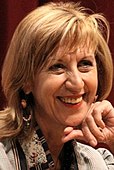
The 2004 Spanish general election was held on Sunday, 14 March 2004, to elect the 8th Cortes Generales of the Kingdom of Spain. All 350 seats in the Congress of Deputies were up for election, as well as 208 of 259 seats in the Senate.

Josep Borrell Fontelles is a Spanish politician serving as High Representative of the Union for Foreign Affairs and Security Policy since 1 December 2019. A member of the Spanish Socialist Workers' Party (PSOE), he served as President of the European Parliament from 2004 to 2007 and as Minister of Foreign Affairs, European Union and Cooperation in the Government of Spain from 2018 to 2019.

Joaquín Almunia Amann is a Spanish politician and formerly, prominent member of the European Commission. During his tenure in the two Barroso Commissions, he was European commissioner responsible for economic and monetary affairs (2004–2009) and, subsequently, vice-president and the European Commissioner for Competition (2009–2014). Previously, he had been Spanish Minister for Employment (1982–1986) and Public Administrations (1986–1991). From 1997 to 2000, he was the leader of the opposition as secretary general of the Spanish Socialist Workers' Party, standing in and losing the 2000 Spanish general election against the then incumbent Spanish prime minister, José María Aznar.

The 1989 Spanish general election was held on Sunday, 29 October 1989, to elect the 4th Cortes Generales of the Kingdom of Spain. All 350 seats in the Congress of Deputies were up for election, as well as 208 of 254 seats in the Senate. An election had not been due until 28 July 1990 at latest, but Prime Minister Felipe González called for a snap election nine months ahead of schedule, allegedly on the need of implementing tough economic measures. González hoped to capitalize on a still strong economy and his party's electoral success in a European Parliament election held in June, after a troubled legislature which had seen an increase of social protest on his government's economic policy and the calling of a massive general strike in 1988.

The 2000 Spanish general election was held on Sunday, 12 March 2000, to elect the 7th Cortes Generales of the Kingdom of Spain. All 350 seats in the Congress of Deputies were up for election, as well as 208 of 259 seats in the Senate.

The Leader of the Opposition is an unofficial, mostly conventional and honorary title frequently held by the leader of the largest party in the Congress of Deputies—the lower house of the Spanish parliament, the Cortes Generales—not within the government. They are usually the person who is expected to lead that party into the next general election.

The 1987 European Parliament election in Spain was held on Wednesday, 10 June 1987, to elect the MEP delegation from the country for the 2nd European Parliament. All 60 seats allocated to Spain as per the 1985 Treaty of Accession were up for election. The election was held simultaneously with regional elections in thirteen autonomous communities and local elections all throughout Spain.
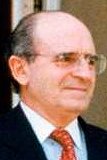
The 1994 European Parliament election in Spain was held on Sunday, 12 June 1994, as part of the EU-wide election to elect the 4th European Parliament. All 64 seats allocated to Spain as per the 1993 Council Decision amending the Direct Elections Act were up for election. The election was held simultaneously with a regional election in Andalusia.

The 38th Federal Congress of the Spanish Socialist Workers' Party was held in Seville from 3 to 5 February 2012, to renovate the governing bodies of the Spanish Socialist Workers' Party (PSOE) and establish the party's main lines of action and strategy for the next leadership term. The congress was called after the PSOE suffered its worst defeat since the Spanish transition to democracy in the general election held on 20 November 2011. Previous secretary-general José Luis Rodríguez Zapatero had announced in April the same year he would not stand for election to a third term as Prime Minister of Spain, announcing his intention to step down as party leader after a successor had been elected.

The 36th Federal Congress of the Spanish Socialist Workers' Party was held in Madrid from 2 to 4 July 2004, to renovate the governing bodies of the Spanish Socialist Workers' Party (PSOE) and establish the party's main lines of action and strategy for the next leadership term. It was held shortly after the party's victory in the 2004 general election and saw José Luis Rodríguez Zapatero being re-elected unopposed for a second term as party secretary-general, with 95.8% of the delegate vote in the congress and 4.2% of blank ballots (39).

The 2014 Extraordinary Federal Congress of the Spanish Socialist Workers' Party was held in Madrid from 26 to 27 July 2014, to renovate the governing bodies of the Spanish Socialist Workers' Party (PSOE) and establish the party's main lines of action and strategy for the next leadership term. A primary election to elect the new party secretary-general was held on 13 July. The congress was called by outgoing PSOE leader Alfredo Pérez Rubalcaba after his party's poor results at the 2014 European Parliament election, garnering just 23% of the vote. Rubalcaba announced his intention not to run for either his party's leadership or for the 2015 Spanish general election.

Susana Díaz Pacheco is a Spanish politician from Andalusia and a leading figure in the Spanish Socialist Workers' Party (PSOE) as the former leader of the Andalusian PSOE-A.
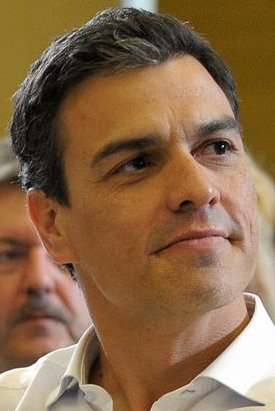
The 2016 PSOE crisis was a political conflict within the Spanish Socialist Workers' Party (PSOE), starting on 26 September 2016. Long-standing discontent with party Secretary General Pedro Sánchez and the combination of a series of circumstances resulted in a party revolt to force Sánchez's dismissal on 28 September, in an episode lasting until 1 October colloquially dubbed by some media and journalists as the "war of the roses". The ensuing power vacuum and Sánchez's replacement by an interim managing committee, coupled with the party's turn to allow a PP minority government after a 10-month deadlock on government formation and the resulting worsening of relations with its sister party in Catalonia, the PSC, triggered a crisis of a scale unprecedented in the party's 137 years of existence.

The 39th Federal Congress of the Spanish Socialist Workers' Party was held in Madrid between 16 and 18 June 2017, to elect a new party leadership in the Spanish Socialist Workers' Party (PSOE) and set out the party's main lines of action and strategy, after the sacking of Pedro Sánchez as party leader in October 2016 had resulted in a caretaker leadership being appointed. The primary election was held on 21 May 2017, after being confirmed in a federal committee on 1 April.

Meritxell Batet Lamaña is a Spanish jurist, former politician, and member of the Socialists' Party of Catalonia (PSC), who served as President of the Congress of Deputies from 2019 to 2023. Prior to this, she served as Minister for Territorial Policy and Civil Service of the Government of Spain between June 2018 and May 2019.

Manuel de la Rocha Rubí is a Spanish politician of the Spanish Socialist Workers' Party (PSOE). A member of the 1st and 2nd terms of the Assembly of Madrid as well as of the 5th, 9th and 10th Congress of Deputies, he has served as Mayor of Fuenlabrada from 1979 to 1983 and as Minister of Education and Youth of the Community of Madrid from 1983 to 1985.
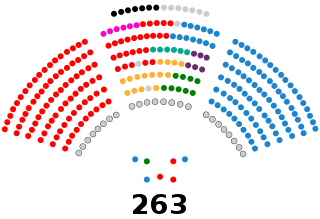
The 14th Cortes Generales was a meeting of the Cortes Generales, the national legislature of Spain, with the membership determined primarily by the results of the general election held on 10 November 2019. The Cortes met for the first time on 3 December 2019, and was dissolved prematurely on 29 May 2023 after regional and local elections in which the governing PSOE lost control of six autonomous communities and many local councils.
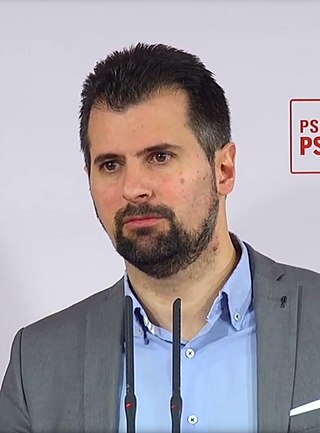
Luis Tudanca Fernández is a Spanish Socialist Workers' Party (PSOE) politician who has been the party's Secretary General in Castile and León since 2014. He has been Leader of the Opposition in the Cortes of Castile and León since the 2015 elections, and was previously in the Congress of Deputies between 2008 and 2015.
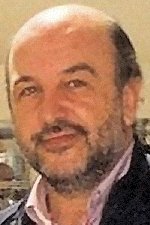
The 34th Federal Congress of the Spanish Socialist Workers' Party was held in Madrid from 20 to 22 June 1997, to renovate the governing bodies of the Spanish Socialist Workers' Party (PSOE) and establish the party's main lines of action and strategy for the next leadership term. It saw Joaquín Almunia being elected unopposed as party secretary-general, with 74.7% of the delegate vote in the congress and 25.3% of blank ballots (231), following Felipe González's surprise announce in the congress opening that he would not be seeking re-election as party leader.

The 33rd Federal Congress of the Spanish Socialist Workers' Party was held in Madrid from 18 to 20 March 1994, to renovate the governing bodies of the Spanish Socialist Workers' Party (PSOE) and establish the party's main lines of action and strategy for the next leadership term.



